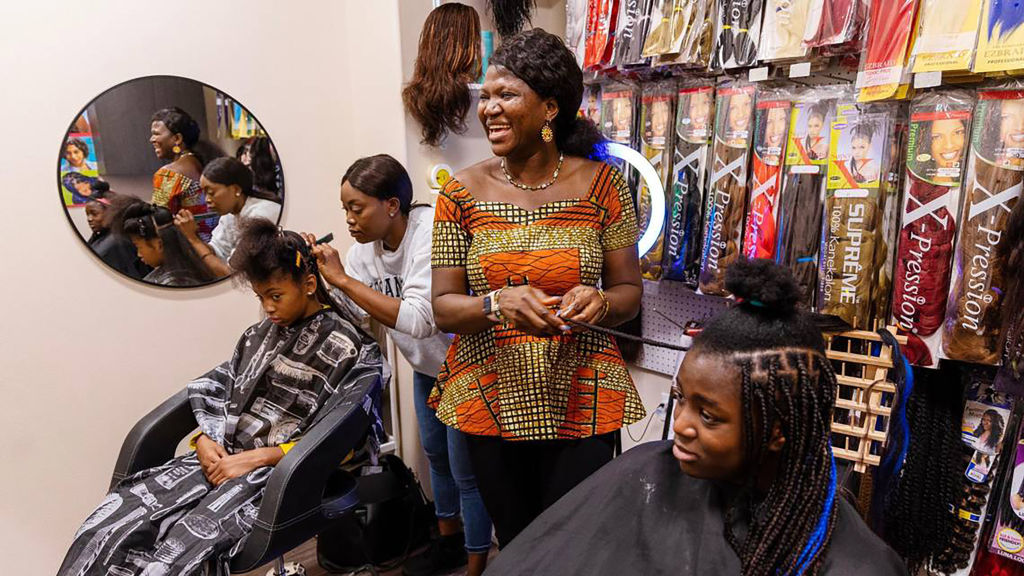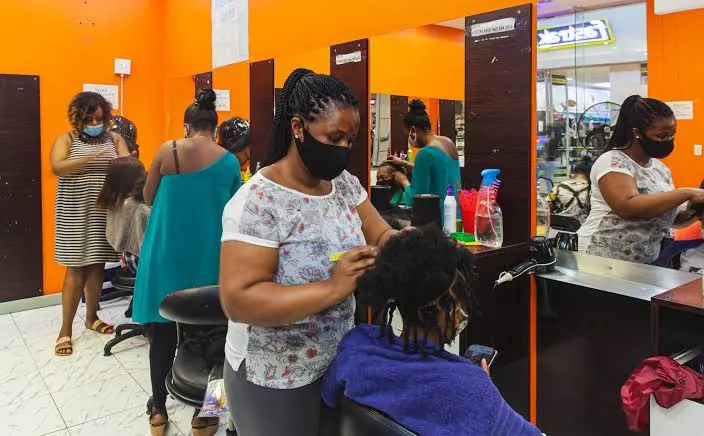Introduction:
Nigeria, a country known for its rich cultural tapestry, boasts a diverse range of traditions that are deeply intertwined with its people’s daily lives. One often overlooked but integral aspect of this cultural heritage is the artistry of hair styling. Hair stylists in Nigeria play a pivotal role in maintaining and promoting the nation’s unique cultural hair traditions. Their expertise extends beyond mere aesthetics, encompassing the preservation of history, identity, and a sense of pride.
The Expertise of Hair Stylists:
Nigerian hair stylists possess a wealth of expertise that goes far beyond creating visually stunning hairstyles. They are guardians of cultural knowledge, understanding the historical and societal significance of each intricate style. These professionals are well-versed in a myriad of traditional hairstyles that vary across ethnic groups, regions, and ceremonies. From the complex gele-wrapping styles to the symbolic threading patterns, hair stylists are the custodians of techniques that have been passed down through generations.
Preservation of Cultural Hair Traditions:
The role of hair stylists in Nigeria goes beyond the superficial; they are instrumental in ensuring the preservation of cultural hair traditions. By understanding the historical and cultural context of each hairstyle, stylists become stewards of an intangible cultural heritage. Their hands skillfully weave the threads that connect past and present, ensuring that these traditions are not lost to the passage of time.

Artistic Expression and Cultural Identity:
Hair stylists in Nigeria act as artists, using their creative skills to embellish hairstyles with cultural elements that reflect the wearer’s identity. Each hairstyle becomes a canvas, adorned with symbols, patterns, and colors that signify cultural pride. The collaboration between the stylist and the client becomes a celebration of heritage, as individuals express their cultural identity through their chosen hairstyles. This collaboration becomes a living testament to the diversity and resilience of Nigeria’s cultural fabric.
Cultural Pride through Collaboration:
Stylists play a crucial role in facilitating a dialogue between tradition and individual expression. Through consultations with clients, they understand the unique cultural context and personal preferences, ensuring that the final creation is a harmonious blend of tradition and contemporary aesthetics. This collaborative process not only fosters a sense of pride but also reinforces the importance of cultural heritage in shaping personal identity.
Contributions to Cultural Heritage:
In their everyday work, hair stylists contribute significantly to the preservation of Nigerian cultural heritage. By embracing and showcasing traditional hairstyles, they actively participate in the cultural continuity that defines the nation. The hairstyles they create become living artifacts, telling stories of resilience, beauty, and diversity.
Conclusion:
The role of hair stylists in Nigeria extends far beyond the realm of beauty and fashion. They are cultural ambassadors, preserving and promoting the diverse heritage that makes Nigeria unique. Through their artistic skills, collaborative efforts with clients, and dedication to understanding the cultural significance of each hairstyle, these stylists are key contributors to the safeguarding of Nigeria’s cultural identity. As they weave, braid, and adorn, they leave an indelible mark on the canvas of Nigerian heritage, ensuring that the beauty of tradition continues to flourish for generations to come.
By Azeez Olalekan




2 Comments